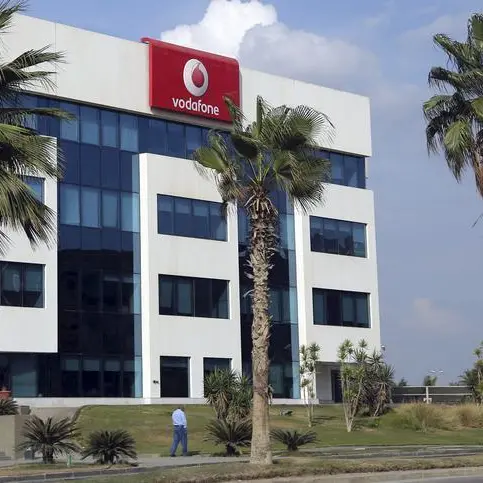PHOTO
Rated Gulf Cooperation Council (GCC) telcos are looking for new ways to expand their businesses and diversify revenue streams, says S&P Global Ratings.
This is because the GCC region's mature telecom markets, with mobile penetration rates of 130%-210%, offer limited organic growth prospects for telcos.
Higher growth rates, broader business diversification, and lower capital intensity fuel the tech appetite of rated telecommunications companies (telcos) in the (GCC) region.
No impact on rating
"We do not expect that the increasing revenue contribution from non-telecom operations will have a rating impact on GCC telcos over the next two to three years and expect rated GCC telcos will continue to exhibit low leverage," S&P Global Ratings credit analyst Tatjana Lescova said.
"Over the longer term, however, we will consider the potential rating impact of GCC telcos' changing business mix, competitive threats, and ability to balance growth and leverage."
Telecom markets in the GCC region are mature, which limits rated GCC telcos' revenue growth to about 1%-3% annually. This stands in stark contrast to tech companies' (techcos') revenues, which we expect will increase by double digits.
Diversification strategy
GCC telcos' diversification strategy could improve their cash flow generation potential, thanks to tech businesses' lower asset intensity. Yet, it could also impair their profitability. Techcos' margins, which are on average lower than telcos', could dilute telcos' consolidated EBITDA margins by 100 basis points (bps) to 300 bps over the next three years.
GCC governments' digitalisation and economic development agendas will support digital businesses and boost GCC telcos' consolidated revenues. S&P estimates non-telecom operations currently contribute about 15%-16% to rated GCC telcos' combined revenues. Digital businesses generate higher revenues in the case of more advanced telcos--including stc and e&--compared with Ooredoo and Beyon.
While core telecom services will continue to account for most revenues and remain the overwhelming profit generators in the short term, we expect digital businesses will grow at a significantly faster pace. Based on S&P’s latest forecast, it is expected that investment grade-rated global software and services companies will expand by 8%-10% over 2024-2025, compared with 1.5%-3.0% for investment grade-rated global telcos.
GCC governments drive digitalisation
Considering GCC governments' strong digitalisation push, we think GCC telcos' growth rates could be higher than elsewhere since the development of a digital economy will spur e-commerce, fintech, streaming, and gaming. Digitalisation will increase private and public spending in information and communication technology (ICT), which will benefit rated GCC telcos because of their leading market shares and close ties with various governments.
For example, Solutions (stc's ICT subsidiary) generated about 44% of revenues from government-related customers in 2023. It recorded a strong revenue growth of 20%-25% over 2022-2023, also partly thanks to M&As.
Digital revenues' relative contribution will increase
S&P estimates that rated GCC telcos' non-telecom operations could contribute 18%-25% to total combined revenues over the next three years. S&P’s sensitivity analysis assumes low single-digit growth for telecom revenues and an organic growth of 10%-20% per year in non-telecom revenues.
M&As could compound on the organic growth, resulting in much faster revenue accretion from tech related services. A material gap will remain between more advanced telcos, whose digital revenues could exceed 30%, and less advanced telcos, whose digital revenues will hover around 8%-14%. Currently, adjacent tech businesses are predominantly concentrated in GCC telcos' domestic markets. However, their gradual expansion to other markets, potentially via M&As, will accelerate growth.
“We think e&'s recent announcement to generate 40% of revenues from techco businesses by 2030 is achievable via a combination of organic and external growth. We forecast GCC telcos' EBITDA margins could shrink by 100 bps-300 bps over the next three years. This is because of the dilutive effect that results from lower-margin non-telecom services.”
EBITDA margins lower
The extent of the effect will vary, depending on the relative share of digital revenues. Based on S&P’s
forecast for investment grade-rated global software and services techcos, EBITDA margins will be at 33%-34% over 2024-2025. This is about 500 bps-600 bps lower than S&P’s expectation of 38%-39% for global investment grade-rated telcos' S&P Global Ratings-adjusted EBITDA margins.
GCC telcos operate at even higher S&P Global Ratings-adjusted margins, which will be 42%-43% over 2024-2025. “We expect e&'s EBITDA margin, which stood at 43.7% in 2023, will increase by 300 bps-400 bps in 2024, thanks to the change in the royalties’ regime in the UAE and by another 200 bps because of the change in accounting after Vodafone becomes an associate.”
Copyright 2022 Al Hilal Publishing and Marketing Group Provided by SyndiGate Media Inc. (Syndigate.info).





















